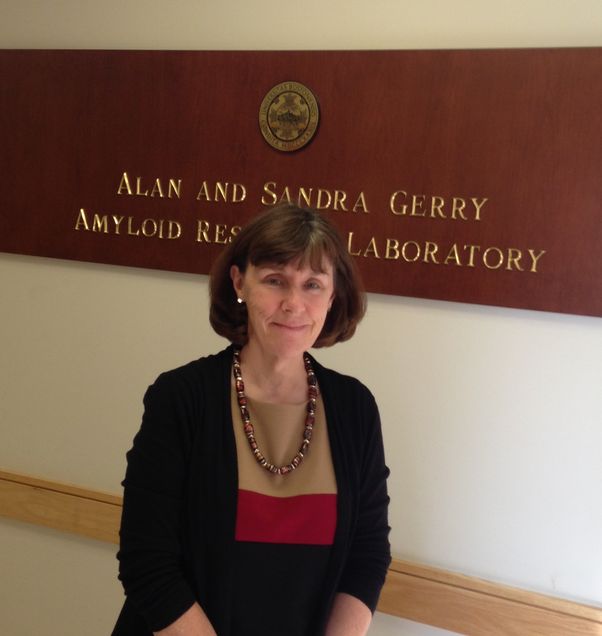Researcher Receives NIH Award to Better Understand Wild-type Transthyretin Amyloidosis
 Lawreen H. Connors, PhD, associate professor of pathology and laboratory medicine and biochemistry at BUSM, is the recipient of a National Institutes of Health (NIH) High Priority, Short-Term Project Award, for her research “molecular mechanism of senile cardiac amyloidosis.”
Lawreen H. Connors, PhD, associate professor of pathology and laboratory medicine and biochemistry at BUSM, is the recipient of a National Institutes of Health (NIH) High Priority, Short-Term Project Award, for her research “molecular mechanism of senile cardiac amyloidosis.”
The one-year, $411,459 award allows Connors to continue her investigations on wild-type transthyretin amyloidosis (ATTRwt), a fatal, age-related protein deposition disease featuring the abnormal formation and accumulation of protein deposits, called amyloid. Previously called senile cardiac amyloidosis, ATTRwt is believed to be an underappreciated cause of heart failure in millions of older Americans and is a major focus of research in the Boston University Amyloidosis Center Gerry Laboratory.
According to Connors the origin and prevalence of ATTRwt are unknown, diagnosis is problematic as disease biomarkers have yet to be identified and disease-specific therapeutic options are untested. “It is clear that improvements are needed in recognition, monitoring and treatment of ATTRwt and our research is aimed at offering contributions in each of these areas,” she explained.
With previous NIH support, Connors and her colleagues have compiled clinical and research data on a study group of 121 patients diagnosed with ATTRwt. The researchers hope to continue their work aimed at characterizing the clinical features in their patient population, uncovering disease-specific indicators present in patient blood and defining factors that may protect against disease onset. “Results from these investigations should provide us a platform for designing therapeutic agents,” said Connors.
View all posts